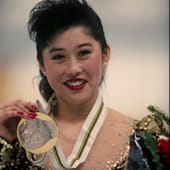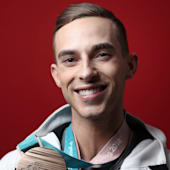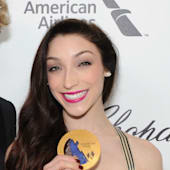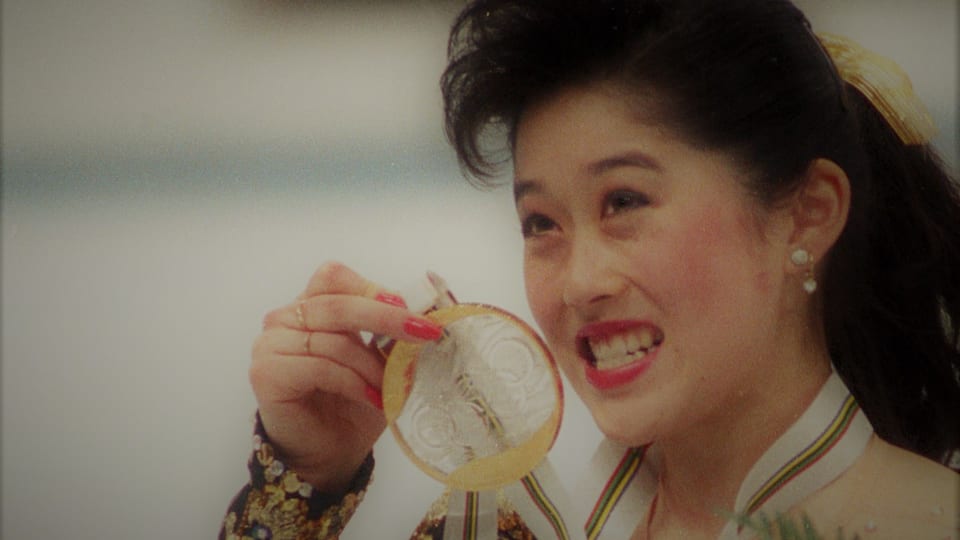
“When you see someone who might not look like everyone else, might not be or might not have the same background as everyone, and you see them succeed… it means so much to young skaters. It means so much to young people.” - Adam Rippon
Nearly 30 years later, the ripple effects of Kristi Yamaguchi’s Albertville 1992 Olympic gold are still being felt – in the United States and beyond.
PyeongChang 2018 figure skating team bronze medallist Adam Rippon's comments on what Yamaguchi’s win meant to him - and many more came in a new original series, ‘Time Machine’, which debuted Saturday (17 October).
The series will re-visit great Olympic moments of the past, and the first episode did just that with Yamaguchi beating Midori Ito and Nancy Kerrigan for gold.
Yamaguchi was joined by Rippon to relive her glory, as well as Sochi 2014 ice dance champion Meryl Davis.
"I was able to really appreciate what it meant, particularly to the Japanese American community. I also gained a deeper appreciation for my family, my ancestors and everything that they had gone through in order for me to live the American dream.” - Yamaguchi on the meaning of 1992 gold
“I think that you look at the moment for Kristi and then look forward to the 2018 Games in PyeongChang and so much of the U.S. figure skating team was comprised of Asian Americans,” Davis reflected. “I think that those moments of representation where someone becomes the first, it leads to great things in the future as well. I think that you, Kristi, were a huge part of creating that movement.”
Rippon’s 2018 American teammates with Asian heritage included Nathan Chen, Mirai Nagasu, Vincent Zhou, Karen Chen, Maia and Alex Shibutani and Madison Chock.
Yamaguchi was the first Asian American to win figure skating gold, and only the second Asian American woman to win an Olympic gold in any sport, following Vicki Manalo Draves’ 1948 victory in diving.
“Honestly I just felt like another California girl that grew up (here), and I had to land a triple Lutz-triple toe,” Yamaguchi shared. “I think it was after when I received so much support and outreach from the Asian American community is when it hit me. ‘Oh wow, what’s going on here?’ … I was able to really appreciate what it meant, particularly to the Japanese American community. I also gained a deeper appreciation for my family, my ancestors and everything that they had gone through in order for me to live the American dream.”
Yamaguchi pointed to 1985 U.S. champion Tiffany Chin as her own hero: Chin, a two-time world medallist, was the first Asian American to win a singles title in the U.S.
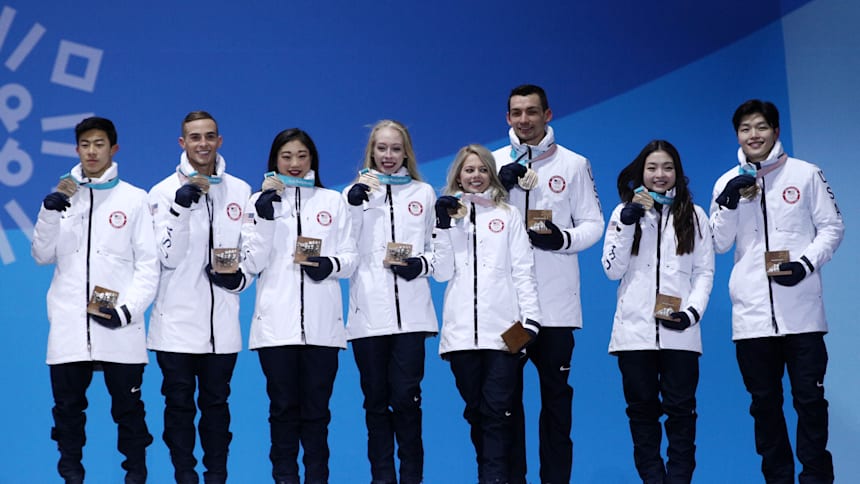
Kristi vs. Midori vs. Nancy
The first episode of ‘Time Machine’ addresses a myriad of storylines around 1992, including Kristi going head-to-head with Japan’s Ito, who – along with American Tonya Harding – was the only competitor to be trying the triple Axel at those Games in the women’s event.
Ito was the favourite headed into Albertville.
“The whole competitive year heading into the Olympics, I was still seen as the underdog,” said Yamaguchi, who had swept the world podium the year prior with teammates Harding (silver) and Kerrigan (bronze). “I was second at both of my international competitions: Skate America (to Harding) and (the French Grand Prix, to Ito).”
“You know, there was a lot of talk about me being the underdog and not having the triple Axel, so I used that to take some of the pressure off. It was like, ‘OK, fine, let them look at those other two and I’ll just do my thing.'"
“I think it was Kristi being like, ‘How can I separate myself from these other girls that are doing a triple Axel?' It was obvious that Kristi and her whole team had this plan." - Adam Rippon on Yamaguchi's winning strategy
“Her thing” included choreography by Canadian Olympic ice dancer Sandra Bezic, who had written Yamaguchi a note reminding her that the moment was hers to take, which she read before going onto the ice.
Rippon called out that choreography, as well as Yamaguchi transitions, footwork and overall artistic presentation as what separated her from the rest – even without the triple Axel.
“I think watching Kristi’s performance now, it’s so interesting because I can see someone who is so totally focussed on what they were doing and not so much on what the other competitors were doing,” Rippon said. “Kristi was doing variations and spins, she was doing these very difficult transitions that people weren’t doing back in the early 90s, along with incredible technique.”
“I think it was Kristi being like, ‘How can I separate myself from these other girls that are doing a triple Axel?' It was obvious that Kristi and her whole team had this plan: She was just going to go and be as good as she absolutely could. It’s so inspiring… and all that she did on a cassette tape.”
Golden memories
Rippon, to laughs, was recalling that cassette tapes were still in vogue in 1992, though CD sales did overtake them for the first time that year. Other early 90s trends that popped up in the ‘Time Machine’ pilot: basketball's Dream Team, fax machines, scrapbooks and – of course – big hair.
“Mine didn’t move,” Yamaguchi recalled of her own hair style, with blow-dried bangs. “Hold it, spray it, and then do the hair dryer thing.”
While the conversation flowed from representation, history-making, the fierce competition and what it meant to Yamaguchi to win Olympic gold, there was plenty of fun, of course, too. Yamaguchi even shared an oversized Kristi doll, wearing her free skate costume, and a scrapbook of photos and memorabilia – put together by her mother.
“I have a note here,” Yamaguchi said, looking at the scrapbook. “It says, ‘Future husband.’”
"You’re going to be great and you’ll make a great champion.” - Brian Boitano to Kristi Yamaguchi in a fax message, sent during the 1992 Olympics
The photo is of Yamaguchi with American hockey player Bret Hedican during the Games. The two would later marry.
“That’s literally the moment I met Bret,” Kristi remembered.
And – pointedly – a fax received from Calgary 1988 Olympic figure skating Brian Boitano, a good friend of Yamaguchi’s then and now.
“This was the morning of the long program,” Yamaguchi said, before reading the letter: “This is your good luck talk; take one thing at a time and enjoy every moment of how you feel. It happens very few times in life and it’s definitely one to savour. You’re going to be great and you’ll make a great champion.”
A great champion, Yamaguchi, then and now. You can see the full episode of ‘Time Machine’ here.

